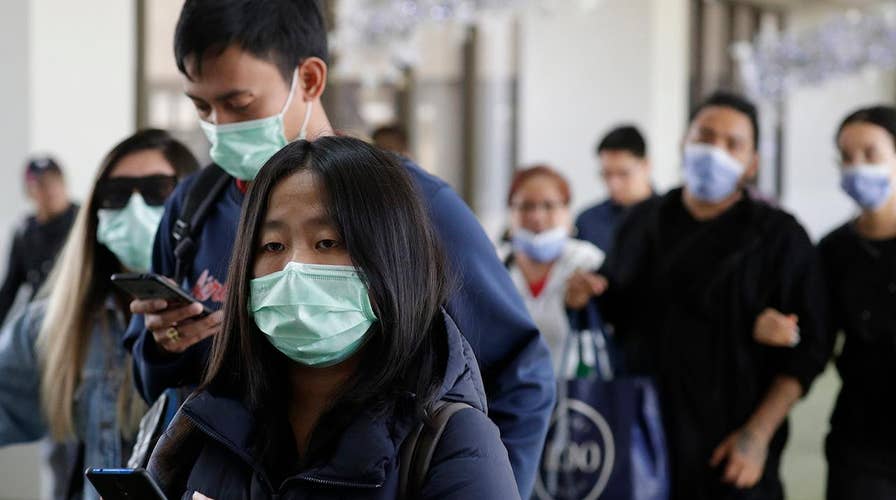World Health Organization considers declaring coronavirus an international emergency
Infectious disease expert Dr. Amesh Adalja on what you need to know about the disease.
As news of the first novel coronavirus diagnosis in the U.S. made headlines and aggressive containment measures in China have been instituted, many Americans may be wondering what risk this virus poses to them and how they can protect themselves. While information is changing minute-to-minute, there are important facts that can help to dispel panic but yet not minimize the importance of this outbreak.
Coronaviruses are a large family of viruses that are responsible for about a quarter of the cases of the common cold but amongst this family are two notable members which have the capacity to cause severe disease: SARS and MERS. When this novel coronavirus was discovered in Wuhan it immediately set off alarms because it appeared in the country in which SARS originated, was linked to possible animal exposure, and was causing people to be hospitalized with pneumonia. Other symptoms include cough, runny nose, sore throat, and fever – hard to distinguish from the myriad upper respiratory infections that people perennially suffer from. There are currently no coronavirus vaccines or antivirals.
DR. OZ REACTS TO CORONAVIRUS OUTBREAK: VERY HARD TO 'WALL IT IN' ONCE IT STARTS
Thus far, this outbreak has killed 17 individuals – many of whom had other medical conditions – and infected at least 500. The case-patient in the U.S. has recovered and is not being hospitalized for any medical interventions. It has been imported to several countries and has prompted the World Health Organization (WHO) to convene an emergency meeting. The CDC is screening and educating travelers to the U.S. from Wuhan via 5 international airports that all impacted passengers are being routed to.
CLICK HERE TO SIGN UP FOR OUR OPINION NEWSLETTER
There are several important questions that are important to answer in order to fully assess the risk of this virus, two of which are key:
- What is its severity? In the early days of an outbreak, it is often the more severe cases that come to light first and early fatality rates are notoriously unreliable. Is this virus more widespread and more likely to cause mild illness than severe? Is this virus more like SARS and MERS or more like the other members of this family?
- How efficiently does this virus spread between humans? Is transmission sustainable between humans? There has been spread of this manner in China but cases imported to other countries have not seen this type of spread and there has been no second-generation spread (a person infected by another person spreads to another person).
CLICK HERE TO GET THE FOX NEWS APP
In my analysis, given the caveats and uncertainty, I do not believe that there is a reason for Americans to panic. In the past, the U.S. has absorbed cases of MERS and SARS without any dire consequences. Americans should, however, pay attention to this outbreak because we will likely have more cases (hopefully uncomplicated) diagnosed here and awareness of the outbreak can help the response to any cases we do have and minimize overreaction, which can prompt poor decision-making by policymakers. All hospitals should be prepared to routinely ask travel history questions and promptly identify those at risk and take the appropriate actions.
I believe that if Americans understand and pay attention to the answers to the above key questions, it will help them conceptualize the level of risk we face.





















